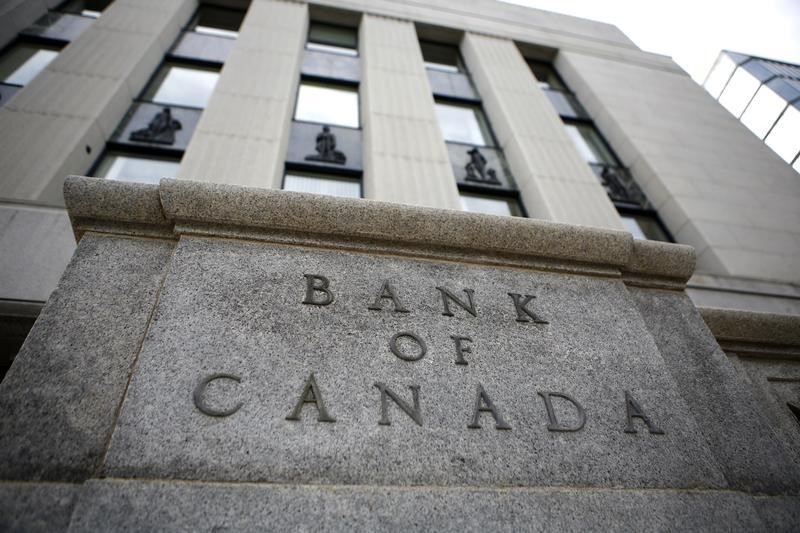By Fergal Smith
TORONTO, Oct 1 (Reuters) - Investors are raising bets for as many as four additional interest rate increases from the Bank of Canada by the end of 2019 after a deal to save the trilateral NAFTA trade pact reduced uncertainty for Canada's trade-dependent economy.
Economists and strategists say that the deal is a better outcome for Canada than tariffs on its auto exports, that were threatened by U.S. President Donald Trump, and could remove an impediment to investment in the country.
It could also prompt the Bank of Canada to reduce the drag to the economy from trade uncertainty that it has built into its projections.
"To me this is a positive outcome," said Andrew Kelvin, a senior rates strategist at Toronto-Dominion Bank. "Going forward it does remove an impediment to growth, to investment."
The United States and Canada had reached a last-minute deal on Sunday to preserve a single trading zone in North America after serious worries it could fragment under Trump's trade pressures. Bank of Canada, which has forecast that trade policy uncertainty will subtract about two-thirds of a percent from gross domestic product by the end of 2020, has raised interest rates four times since July 2017 to leave its policy rate at 1.50 percent.
"October looks as close to a lock (for a rate hike) as a person can reasonably say and it (a trade deal) lowers the hurdles to follow up hikes in 2019 as well," Kelvin said.
The overnight index swaps market has priced in 100 basis points of further tightening before the end of 2019, up from 88 basis points before data on Friday showed stronger-than-expected growth BOCWATCH in Canada's economy in July.
That amount of tightening could see the central bank outpace the Federal Reserve over the coming year. Money markets expect the Fed, which raised interest rates in September for the third time this year to a range of 2 percent to 2.25 percent, to hike an additional 65 basis points by the end of next year. FEDWATCH
The Canadian dollar CAD= strengthened to a four-month high against its U.S. counterpart at $1.2788, or 78.20 U.S. cents, after notching on Friday its biggest gain in four months.
At National Bank Financial, Paul-Andre Pinsonnault, a senior fixed income economist said that the Bank of Canada could raise its outlook for growth at the upcoming Monetary Policy Report in October but he cautioned that the central bank will want to see how corporations will react to the trade deal.
"It might take some time before we get an uptick in the investment compared to the trend that we have lately," Pinsonnault said.
